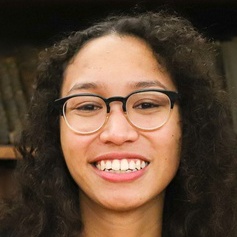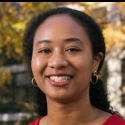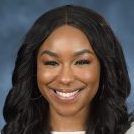 Recently, the Rhodes Trust announced the 32 American winners of Rhodes Scholarships for graduate study at Oxford University in England. Rhodes Scholarships provide all expenses for two or three years of study at the University of Oxford in England and may allow funding in some instances for four years. Being named a Rhodes Scholar is considered among the highest honors that can be won by a U.S. college student.
Recently, the Rhodes Trust announced the 32 American winners of Rhodes Scholarships for graduate study at Oxford University in England. Rhodes Scholarships provide all expenses for two or three years of study at the University of Oxford in England and may allow funding in some instances for four years. Being named a Rhodes Scholar is considered among the highest honors that can be won by a U.S. college student.
The scholarships were created in 1902 by the will of Cecil Rhodes, an industrialist who made a vast fortune in colonial Africa. According to the will of Rhodes, applicants must have “high academic achievement, integrity of character, a spirit of unselfishness, respect for others, potential for leadership, and physical vigor.”
Applicants in the United States may apply either through the state where they are a legal resident or where they have attended college for at least two years. This year, more than 2,900 students began the application process; 963 were endorsed by 298 different colleges and universities. Two-hundred thirty-six applicants from 90 different colleges and universities reached the final stage of the competition. A total of 32 scholars were chosen, two from each of 16 districts across the United States. To date, 3,516 Americans have won Rhodes Scholarships, representing 324 colleges and universities.
In 1907 Alain LeRoy Locke, later a major philosopher and literary figure of the Harlem Renaissance, was selected as a Rhodes Scholar to study at Oxford University. It is generally believed that at the time of the award the Rhodes committee did not know that Locke was Black until after he had been chosen. It would be more than 50 years later, in 1962, until another African American would be named a Rhodes Scholar. Other African Americans who have won Rhodes Scholarships include Randall Kennedy of Harvard Law School, Kurt Schmoke, former mayor of Baltimore, and Franklin D. Raines, former director of the Office of Management and Budget and former CEO of Fannie Mae. In 1978 Karen Stevenson of the University of North Carolina at Chapel Hill was the first African-American woman selected as a Rhodes Scholar.
This year, four African Americans – all women – were chosen as Rhodes Scholars. Last year, there were three African American among the 32 scholars chosen from the U.S. In 2017, there were 10 African American Rhodes Scholars, the most in any one year in the history of the scholarship.
Here are brief biographies of the four African American Rhodes Scholars selected this year.






This article is very MISLEADING on numerous levels. Three out of four of the women are African/Caribbean immigrants and Not “Native Born Black Americans. Stop Identifying African/Caribbean immigrants as “African Americans” because that’s akin to cultural appropriation.
OK…picky, picky. Four women of color! Good enough
They are African American, all born in the U.S. Their parents are immigrants and such their culture may be partly West Indian or African. You obviously have an ulterior motive in pointing out that they are not “just African American.” But it isn’t going to work. I personally prefer using Black as an identifier to encompass the entire Black Diaspora peoples. Note, these women are all Black. Congratulations ladies. Very proud of you as I know your families and communities are.
There is an ulterior motive. There is a sociological difference to being an African immigrant and an African american of slavery lineage. In fact, statistics say that African immigrants are overrepresented when it comes to black people in universities. This is a problem because it distorts the intended redress of highlighting african americans. The lineage of the receiving end of slavery, Jim Crow, etc. cannot be reduced to melanated skin and nappy hair. It’s a form of further injury and oppression to people who are already not heard by society at large, so to conflate the typically well off west-indian/african/ biracial transplants with black american descendants of slavery is just another form of racial suffocation.